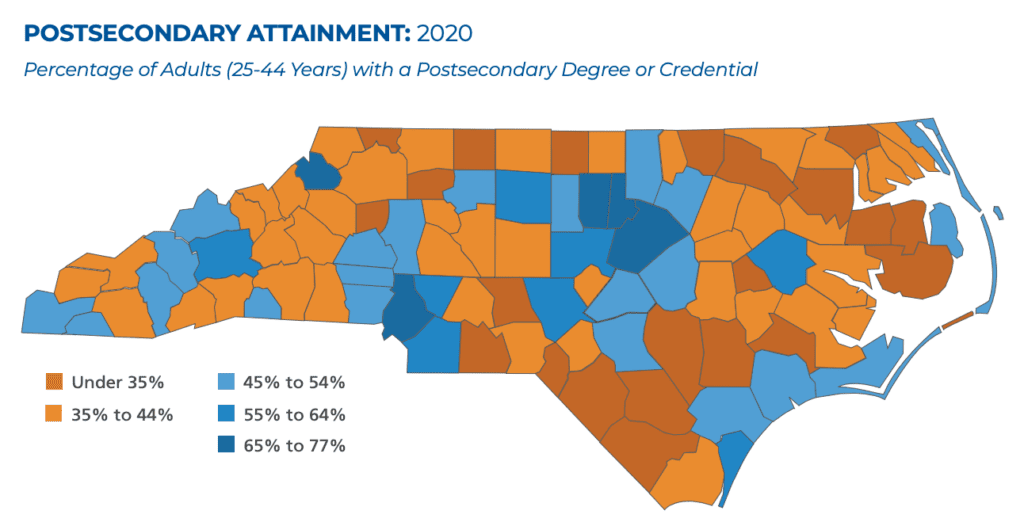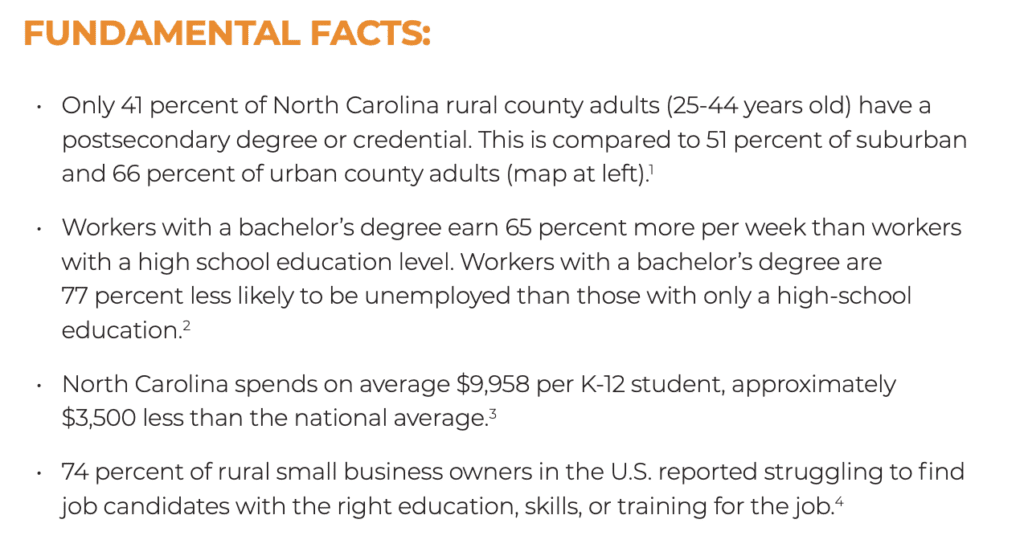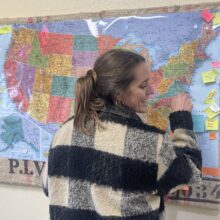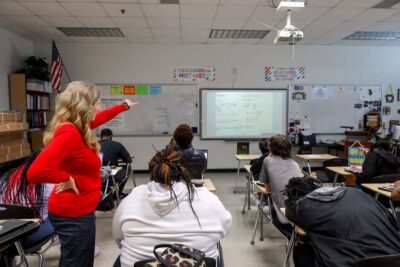|
|
Around 600 rural advocates ranging from policymakers to business owners, from local leaders to nonprofits, descended upon Raleigh last week for the 2023 Rural Summit.
The N.C. Rural Center spearheads this gathering of rural players to explore the challenges and celebrate the opportunities that live in rural North Carolina. This year’s theme was “Driving Policy Change: All Roads Lead to Rural.”

In his introduction, N.C. Rural Center President Patrick Woodie dove into the driving factors of change in rural North Carolina. These drivers impact people, communities, and businesses, challenging growth. The hope is if we collectively understand these forces, we can focus on the future of rural North Carolina.
“Within every daunting challenge, there lies opportunity, and nobody knows that better than rural people. It is the Rural Center’s fervent hope that every one of us will seek to seize the opportunities found within these eight drivers of change, and to drive the positive change that we wish to see in the places that we know and love best. That is the hope and faith that the North Carolina Rural Center has in each of you.”
Patrick Woodie, president of the NC Rural Center
Education taking center stage
Education took center state during the summit, highlighting the need to prepare the state’s future workforce. Attracting business in the state’s rural areas depends on the ability to educate and train people of all ages.
Of the 38,572 jobs created in North Carolina from 2019 to 2020, 98% of those were within small businesses (500 employees or less), according to the Small Business Administration.
As demand for workers grows, so does the need for a qualified workforce with the right certifications and degrees. According to SCORE, 74% of rural small business owners in the United States reported struggling to find job candidates with the right education, skills, or training for the job.
Rural North Carolina has the lowest postsecondary attainment compared to suburban and urban areas. Nonprofits like myFutureNC have set a statewide goal to increase the number of North Carolinians with credentials or degrees, regardless of what region they reside in.

In Gov. Roy Cooper’s welcome at the summit, he emphasized the need for educational investment.
“We need to invest in our community colleges. We need to invest in education, from cradle to career.”
North Carolina Gov. Roy Cooper

During the breakout session portion of the summit, participants had the opportunity to attend the “Higher Education Partnerships: A Key to Building Our Future Workforce.” The panel included representatives from N.C. State University, Western Carolina University, and Vance-Granville Community College.
The panelists identified key strategies at their prospective schools, along with the strengths of their particular geographic locations, in reaching long-term workforce development goals and increasing entrepreneurial endeavors in rural areas. Overwhelming themes from the panelists were collaboration and partnership.
What do each of them believe is the single most important investment that would increase economic development?
Forces driving change
The other areas of focus throughout the summit included health care, infrastructure, climate resiliency, small business, demographic changes, leadership development, and the long-term impact of COVID-19.
These topics were discussed during a bipartisan panel of legislators, along with their visions for the General Assembly’s 2023 session. Joining the panel were House Democratic Leader Rep. Robert Reives, D-Chatham, House Speaker Tim Moore, R-Cleveland, Sen. Michael Lazzara, R-Onslow, and Senate Minority Leader Dan Blue, D-Wake.
Moore said of the budget coming out, “You’re going to see continued significant investment in rural North Carolina.”
He spoke of reinvesting throughout the state, “from Murphy to Manteo” in rural and urban areas, using the surplus money to shore up projects they had already funded.
During the morning and afternoon, there were 12 breakout sessions that allowed participants to engage with experts in topics like rural opportunity, advocacy, and collaboration, exploring on a deeper level the eight driving forces impacting rural North Carolina.
Breakout sessions at Rural Summit
- Rural Drivers Deep Dive Part 1: Prioritizing the Vitality of Rural People and Places
- Rural Communities at the Forefront of Climate Resilience
- Collaborative Approaches to Bridging the Digital Divide
- Rural Housing: Affordability, Accessibility & Policy Solutions
- Addressing Health Disparities & Workforce Challenges in Rural NC
- Higher Education Partnerships: A Key to Building Our Future Workforce
- Rural Drivers Deep Dive Part 2: Embracing Rural Economy Today for a Stronger Tomorrow
- Leveraging Community Partnerships to Develop Sustainable Water & Wastewater Systems
- Owning a Slice of Main Street: Supporting & Investing in Black and Brown Entrepreneurs
- Healthcare Beyond Your ZIP Code: Increasing Access to Telehealth Solutions in Rural Areas
- Building Strong & Resilient Businesses, Families & Communities
- Advances in Public-Civic Partnerships: The Changing Face of Rural Advocacy
- Closing the Digital Divide: What Do You Want to See in the State’s Broadband & Digital Equity Plans?
For the first time in a decade, rural America has seen an increase in population, according to this report. Of the eight factors impacting rural places, Woodie is forever optimistic because of the people that make up these communities.
“These influences or drivers, as we have termed them, are forces that are present whether we want them to be or not,” Woodie said. “We can’t control the fact that they exist. What we can control is the way in which we as a state, as regions, as communities, and as individual people choose to respond to them.”





